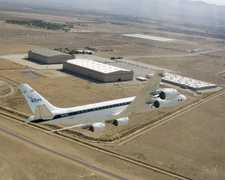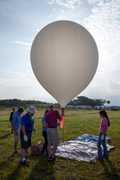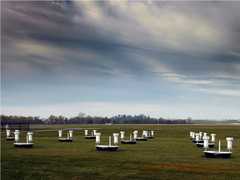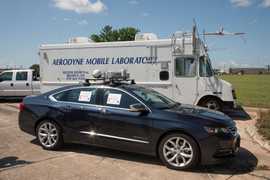
Intercontinental Chemical Transport Experiment - North America
Atmospheric Composition
- 2
- view all deployment datesDeployments
2004-07-01 2004-08-15 2006-03-01 2006-05-17 - 11
- Platforms
- 21
- Data Products
The Campaign
The Intercontinental Chemical Transport Experiment - North America (INTEX-NA) was a NASA campaign aimed at studying the transport and transformation of aerosols and trace gases in the atmosphere. INTEX-NA included two deployments during the boreal summer of 2004 (INTEX-A) and the boreal spring of 2006 (INTEX-B). NASA’s DC-8 and several other aircraft were equipped with various in situ and remote sensors to collect atmospheric chemistry and meteorological data over North America and its surrounding oceans. INTEX-NA was funded through NASA’s Tropospheric Chemistry Program.
INTEX-A, INTEX-B
N: 70°N
S: 10°N
W: 170°W
E: 15°E
no campaign DOI available
- ESPO Project Website for INTEX-NA
- ASDC Landing Page for INTEX-A
- ESPO Project Website for INTEX-B
- ASDC Landing Page for INTEX-B
- Overview of the INTEX-A deployment
- Overview of CO2 observations during INTEX-NA
- Overview of the INTEX-B deployment
- Overview of aircraft and satellite measurements during INTEX-B
- Overview of OH measurements during INTEX-B
Additional Notes
INTEX-A was part of the International Consortium for Atmospheric Research on Transport and Transformation (ICARTT) project. INTEX-B coordinated with the Megacity Initiative: Local and Global Research Observations (MILARGO) investigation.
Repositories

Douglas DC-8

Jetstream 31

Balloon Launch Site

Scaled Composites Proteus

Beechcraft Model 76 Duchess

Jetstream 31

Dassault Falcon 20-E5

C-130 Hercules

Field Site

Vehicle

Beechcraft B-200 King Air
Cessna 207 Stationair

Douglas DC-8
Events
Filter data products from this campaign by specific platforms, instruments, or formats.
